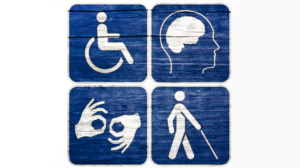Aged Care – Too many questions and not enough time
 From 1 July 2014, a person entering an aged care facility has 28 days to decide how they are going to pay the Refundable Accommodation Deposit (RAD) – do they pay the total amount or pay part of the RAD as a Daily Accommodation Payment (DAP)?
From 1 July 2014, a person entering an aged care facility has 28 days to decide how they are going to pay the Refundable Accommodation Deposit (RAD) – do they pay the total amount or pay part of the RAD as a Daily Accommodation Payment (DAP)?
You may be asking, if I pay the full RAD won’t this increase my Means Tested Care Fee (MTCF)? The short answer, yes it will, but it will also increase your age pension, if you qualify for any part of the age pension.
Do I sell my home and invest the proceeds to ensure that I am able to cover all my costs? Am I better off investing most of the proceeds from the sale of my house and only paying part of the RAD and then a DAP? If I don’t sell my home and decide to rent what will the effect be on my aged care fees and my age pension? If I don’t sell my home and don’t rent it how will this affect my age pension and my aged care fees?
Case study
Shirley is a widow in her mid-80s, owns her $450,000 home. She has a number of term deposits worth a total of $100,000 and is in receipt of a full age pension.
Shirley never believed she may need to enter aged care, she was healthy and lived an active and full life, but unfortunately after a fall that is exactly the prospect she faced – an aged care residence with a RAD of $300,000. She must now come up with answers to all the questions that we have asked to ensure that she makes the best decision.
1. She could keep the home and not rent it, for the purposes of calculating her MTCF it would have a capped value of $154,179 and it would be exempt from the assets test for age pension calculation for a period of two years.
Shirley could pay a $50,000 RAD and the balance owed could be paid as DAP. Her means tested care fee would be low in this case $2.90 per day, however as the balance owing on the RAD is $250,000 which is subject to an interest rate of 6.69% her DAP would be $45.94 per day. Total fees would be the basic fee, MTCF and the DAP – $95.34.
Shirley would be far better off to rent her house and her aged care fees would remain the same. The additional income she does receive from the rent does not affect her aged care fees or her age pension as she is paying a DAP and the cash flow issues would be resolved.
2. Two matters stand out in Shirley’s case she is an age pension and the RAD is not assessable for the purposes of her pension, if she only pays a part of the RAD any monies which she retains and invests depending on the amount could reduce her pension entitlement.
Secondly, any money she happened to invest would have to return better than 6.69% which is the interest rate applicable to any outstanding RAD.
In the current environment, a one year term deposit is not even returning 4% and the possible increase in her age pension could amount to a further 1.7%.
Aged care is a very complex issue and requires the assistance of an expert if you are to make all the right decisions for either yourself or a loved one – contact us today so we can help you further.
Source: Mark Teale, Centrepoint Alliance






